In the conclusion of our two-part discussion on crowdfunding, Tim Donley shares more of his insights gained from over two decades of developing and releasing games. This conversation picks up right where the previous left off, and with Tim just having mentioned that there are reasons why crowdfunding isometric RPGs is successful.
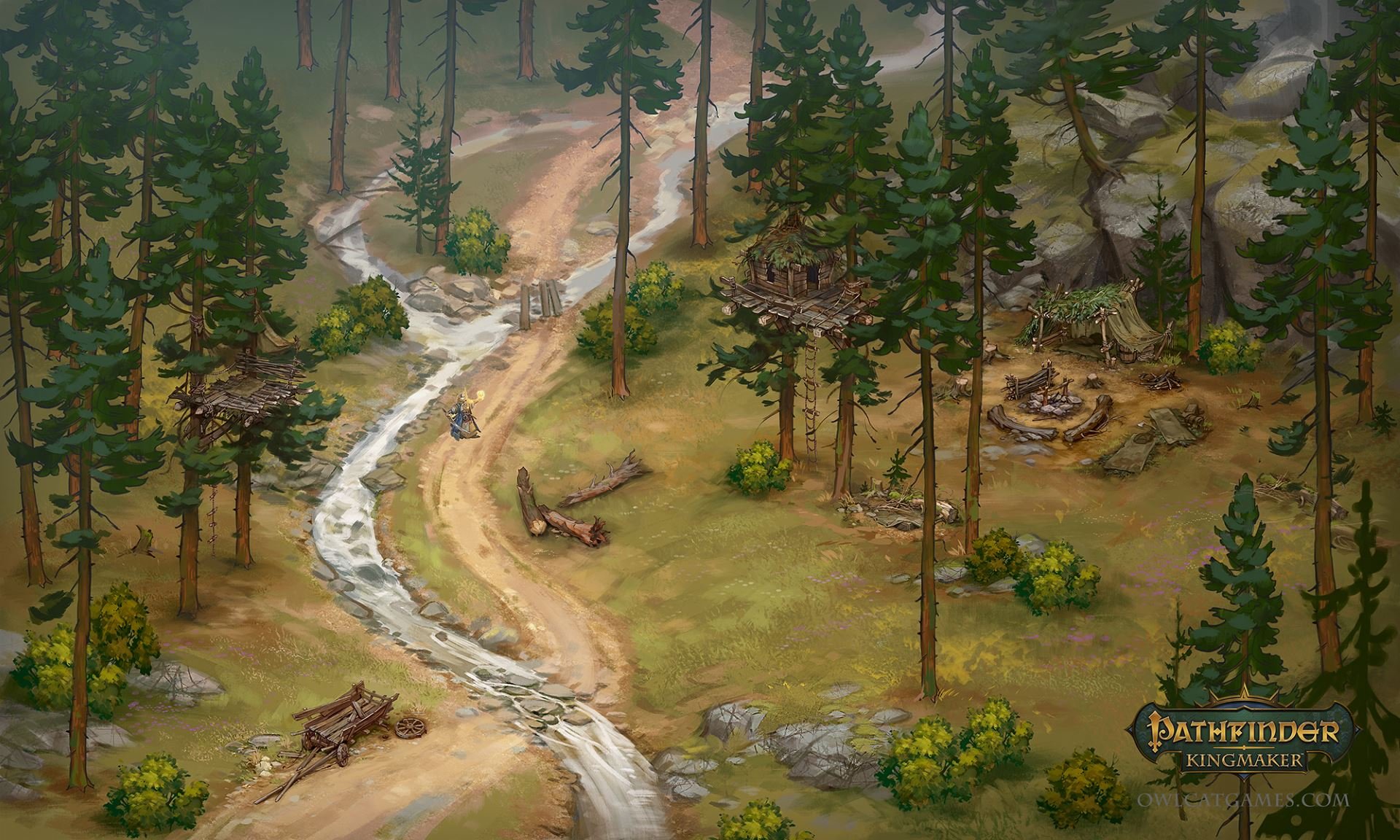
Pathfinder: Kingmaker. View full size.
There's definitely a market for these games - do you think Kickstarter is the best way to go about it?
Tim: Well, a lot of times, Kickstarter proves something out. There’s a reason publishers sometimes don’t pick up games, and it’s not because they hate everybody and they’re just trying to be greedy moneymakers. It’s just that the game isn’t profitable. Not every idea is destined to rake in a ton of money. It isn’t always a matter of finding a market – you have to find people who will play it… as in, maybe you find someone who would play the game but he doesn’t have a computer, but if he had the game on his phone he would play it.
So, one of the things about Kickstarter is that it’s an equalizer. It’s allowed certain games that would never get published by a publisher to come out and be successful and make a profit that’s enough for the developer to continue making games. With a regular publishing model, it wouldn’t have been profitable. Those are the games that benefit the most from Kickstarter. But then I think there are a lot more games that have been put on Kickstarter by inexperienced game developers that haven’t been through a lot of dev cycles and they are abysmal failures. They don’t deliver, they disappoint the people so much that it turns off those people from future Kickstarters. You see it all over the place – you could type in “failed Kickstarter games” and there’s a hundred post-mortems about how they disappeared, the developer fell of the face of the earth, their communications stopped… it really does show you need a front man or somebody out there who is willing to talk to the crowd.
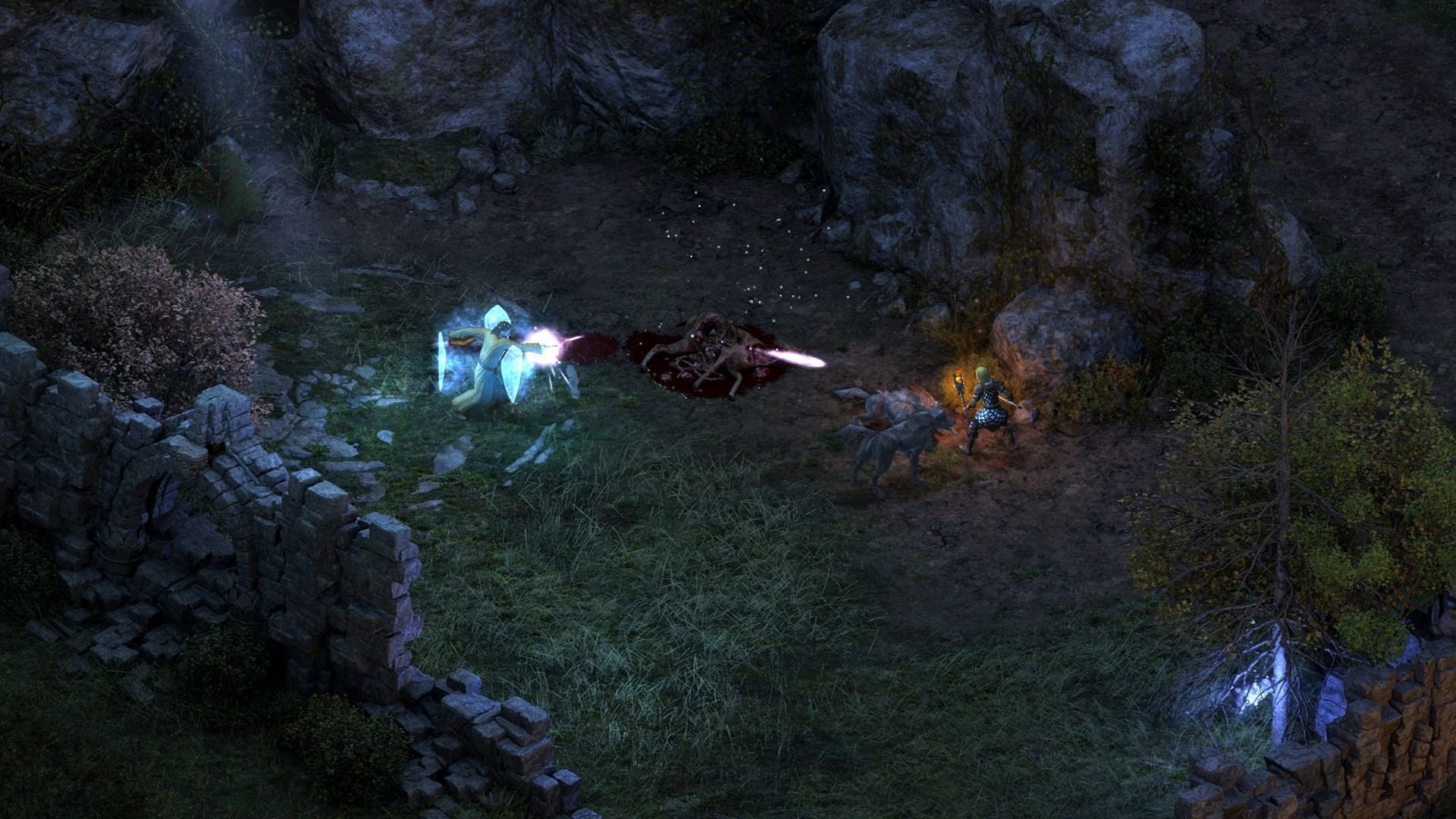
Pillars of Eternity. View full size.
You mean engaging with the community?
Tim: Yeah, you can’t just go off and develop in secret. It doesn’t work that way in a regular publishing situation and it certain doesn’t work that way in a public publishing situation. Public being Kickstarter, regular being, say, if I had a development team here in Austin and I got a publisher that’s Microsoft in Seattle. I need to have someone on my team that’s a face-person between the company here and the publisher there because they want to know what’s going on. It’s their money. Just like a Kickstarter backer, the guy donated a buck so he’s got a right to know something. You can’t just disappear into the crevices and say, “we’ll be back in a year, guys, thanks”.
No, they donated because part of the promise of every Kickstarter is that, hey, we’re going to make you part of the development. Well, being part of the development means that they get updates. It doesn’t mean you go quiet, and I think a lot of Kickstarters forget that. They just think that they’re too busy, or “I gotta go to a tradeshow”, or “I gotta go to PAX so I can’t give a weekly update”. Really? You can’t give a weekly update? What are you so busy with, buddy? When exactly while you were collecting the million dollars, when did you decide that you were going to be so busy that you couldn’t put down an update? We do two updates a week for Boss 101 and we’ve been doing it for over three years now.
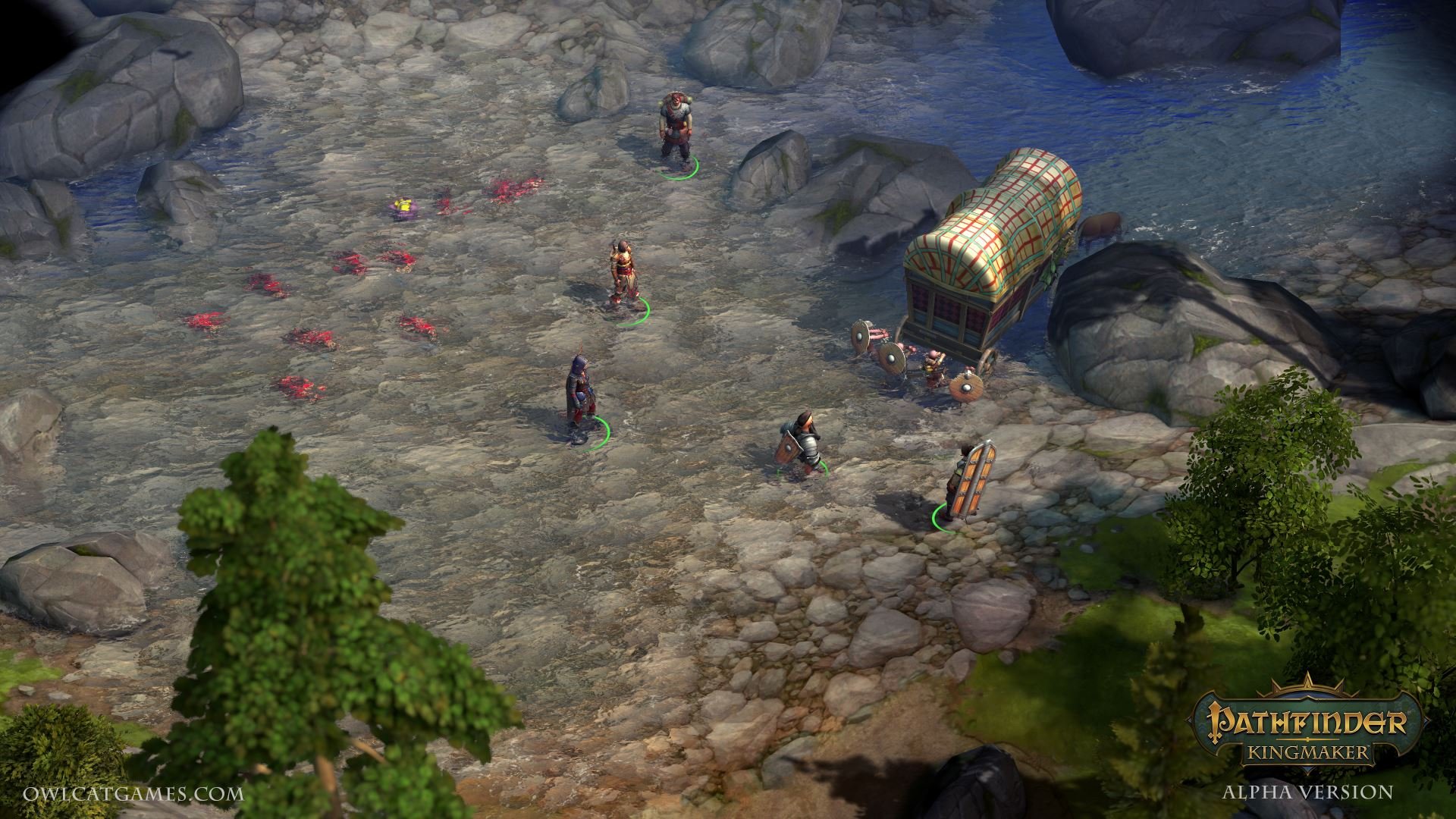
Pathfinder: Kingmaker. View full size.
I’ll send you the link to Pathfinder: Kingmaker. They’ve been very good with their updates. They’re still a little shy of their goal* but I’m sure they will hit it. But those initial, those 10,000 people that you’re talking about, they have poured a lot of the money in.
*Note: Pathfinder: Kingmaker’s Kickstarter has since ended and the team secured $909,057 pledged of $500,000 goal, from 18,351 backers.
Tim: Yeah, that’s what I’m saying! And you look at it and I bet most of them are backing at the… well, let’s not say the lowest tier, but I bet they’re all early adopters and they’re probably backing the basic edition which is the digital download version. I’ve noticed now there’s a lot less people… like, for a while in the heyday of Kickstarter, you would see people backing at this weird $5,000 or $6,000 level, like “come get lunch with the developers!”.
I’m scrolling through that right now, and it’s exactly what you say. There’s one $4,000 that’s been taken, there’s one $5,000… but the $10,000 tier, the $7,500 tier, those are all empty. You’re totally right.
Tim: Those used to get snapped up right away! Those were like the first to go, and that would have been maybe three or four years ago where you’d see Pillars of Eternity… I think they had one of theirs which was like “come to the studio and design a character” or “design some lore with us and play a game of D&D”. And that was like $10,000 or $12,000 and I know that went right away.
I think now people are looking at them more like a pre-order. They’re saying, “OK well here’s $12. If you guys come through, awesome. If you don’t, I’m only out twelve bucks. I’m not gonna commit $50 for this t-shirt or $50 for this little extra pet” or something like that, or “my name is going to be spelled out in gold in the game”. They don’t care about that anymore, they’re just like, “here’s $12, that’s maybe a meal or two at the local food court, who cares?”.
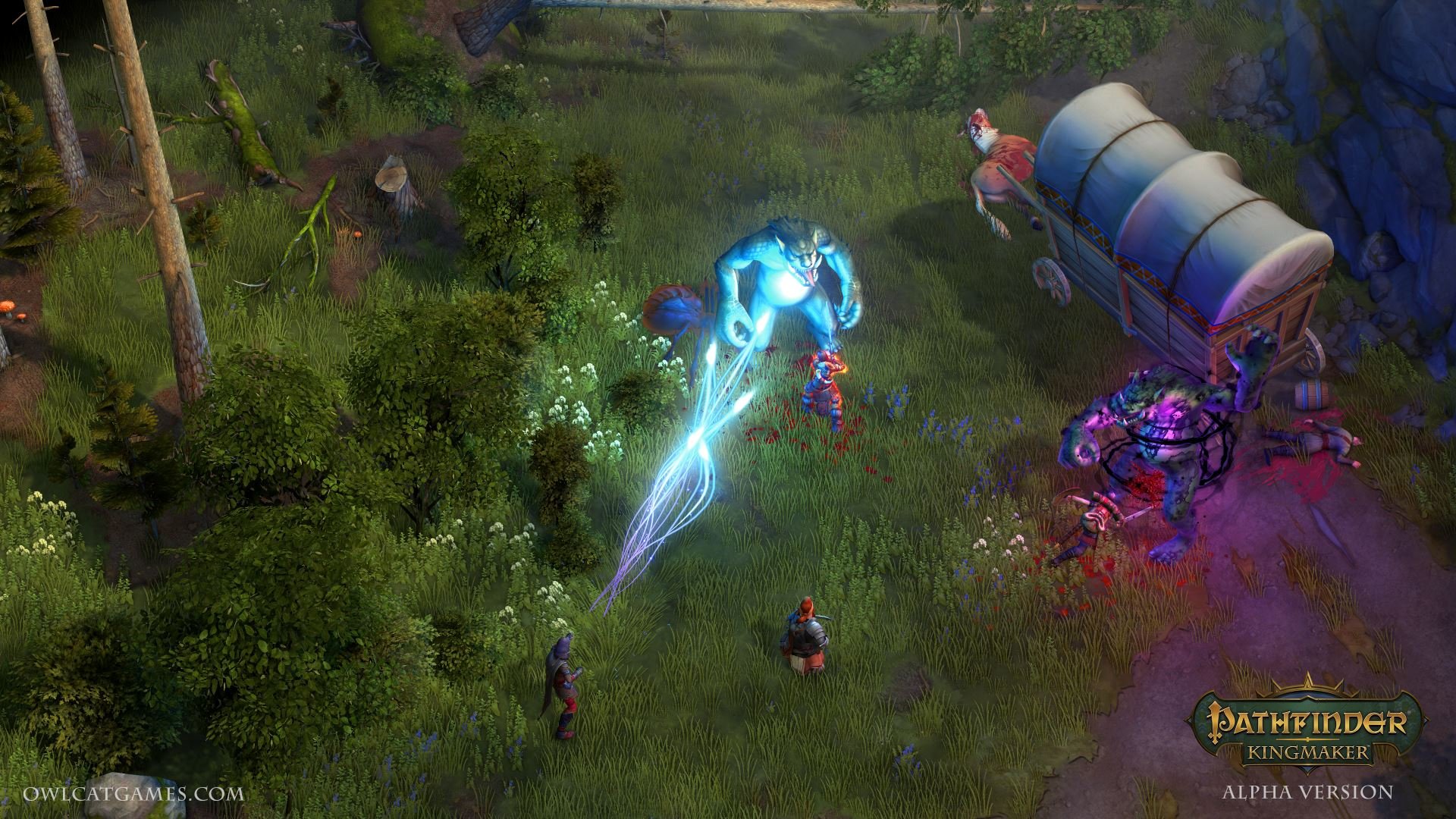
Pathfinder: Kingmaker. View full size.
And if I had to point out a problem with Kickstarter, the problem that’s happening now is that people are treating it more like pre-orders and they’re treating the company making it like a retailer, which is to say that if it seems like that person isn’t going to deliver the game, they’re just going to have no success the next time around. People will remember “oh, I tried to order a game from them in the past, it didn’t work so fuck it I’m not gonna do that again”. Whereas before, you would order from Obsidian or InExile because you believed in that company on every single level and you were just like, “I’ll give them $75 just so I can have a t-shirt and a thank you and a mention in the credits as a producer role”.
Now people are like, “whatever, I don’t want all that. What’s my minimum commitment level that will get me the game?” And if you can get 10,000 or more people, you’ve got it. You’ll probably get close to half a million, maybe $1 million in some cases if you can get a few more people in. I mean, I look at Pathfinder: Kingmaker - I saw some screenshots and it looks remarkably like an update of Baldur’s Gate. It’s got the same cursors, it’s got the same ground-click cursors, and I’m just thinking, wow, this is super similar. Again, there’s those Baldur’s Gate people saying “I still wanna play Baldur’s Gate” but there’s also a lot of Baldur’s Gate people that have moved on to Path of Exile. It’s like a Diablo/Baldur’s Gate multiplayer game.
Is that the free one?
Tim: Yeah.
OK, I’ve played that. It’s actually very good.
Tim: It’s incredible! Like, it’s an incredible game and as hard as it is to maybe admit that it’s not as deep story-wise as anything Obsidian or InExile’s gonna make, for free it’s pretty amazing. You can run around with your buddies and basically have a pretty good time for nil cost.
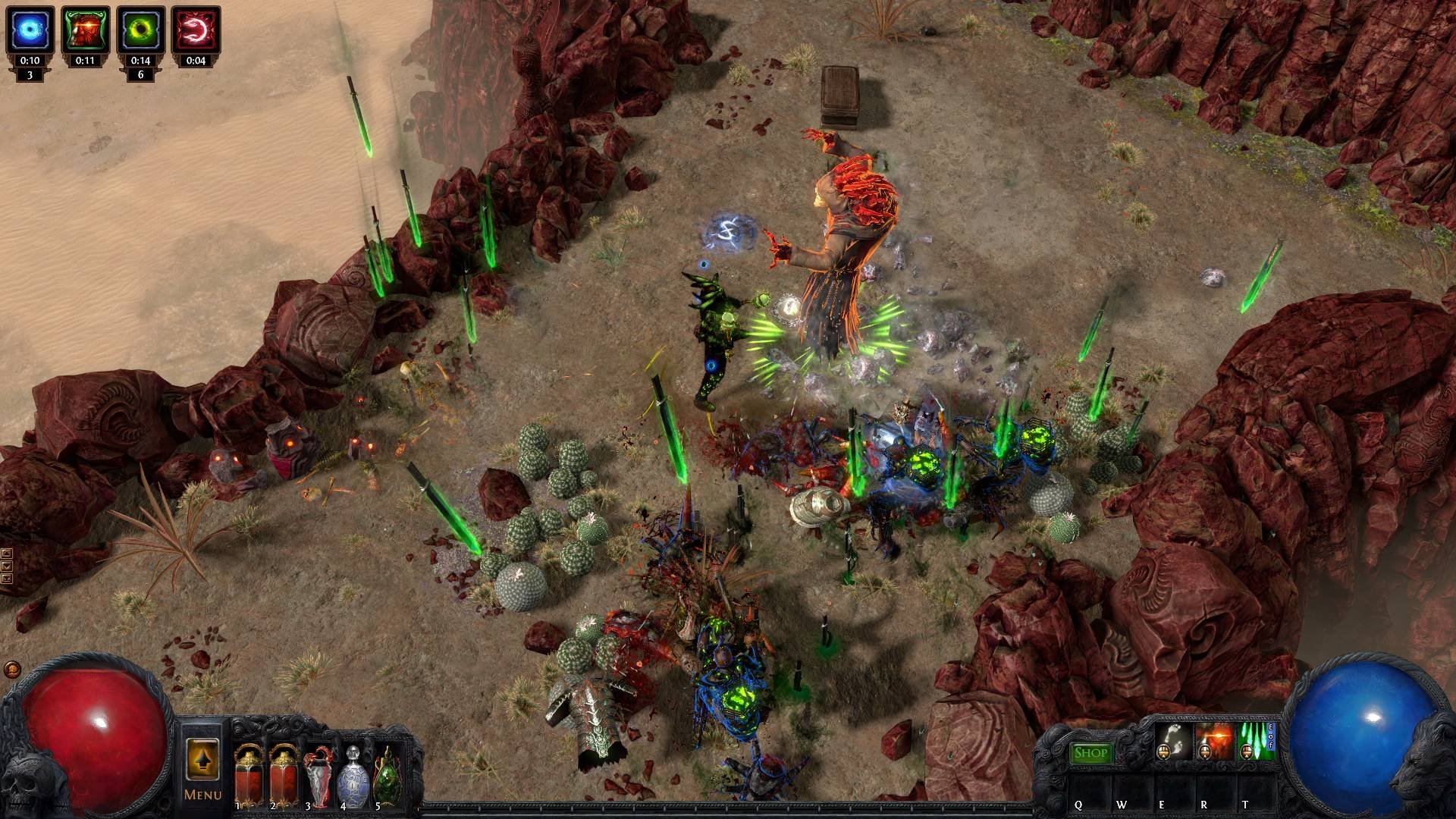
Path of Exile. View full size.
It scratches that Diablo itch perfectly.
Tim: Yeah, if you just want an isometric game, cool! Now if you want a story, sure, maybe you’re going to have to find something a little more elaborate but at that point you might go to Skyrim or something else that… if you just want to read books, Skyrim’s got like hundreds of books. You can read thousands of pages of lore and history of the land, and that’s cool.
It’s weird – I’ve been following the Kickstarter stuff probably like you follow the cryptocurrency stuff. I’m always interested to see where it’s going and always interested to see the pitches. A couple years ago you’d see things like producers and game developers of ancient times – the 90s! – coming out and saying, “ah, we’re gonna redo Mega Man!” or “we’re gonna redo Castlevania; we’re gonna redo blankety-blank”. And they made maybe three or four million dollars, and now, well I seriously doubt you could do that on Kickstarter right now unless you presented something very, very compelling. I don’t think that’s going to happen anymore.
Now, I’m specifically talking about somebody coming out with as little as, “hey, I used to work on, oh, Great Monkey Magic back in the early 90s. Remember that game everybody? Here’s a concept drawing! Give me some money. I’m going to work on the Great Monkey Magic Part 2 that never got made but you all read about in some old games magazine” and everyone’s like “yaaay let’s do that, here’s $10 million!”. You can’t do that anymore. You’ve got to show gameplay and you’ve got to show that you’re a serious team. A video of a bunch of talking heads is a tough one this time, man. It’s gonna be hard with only that.
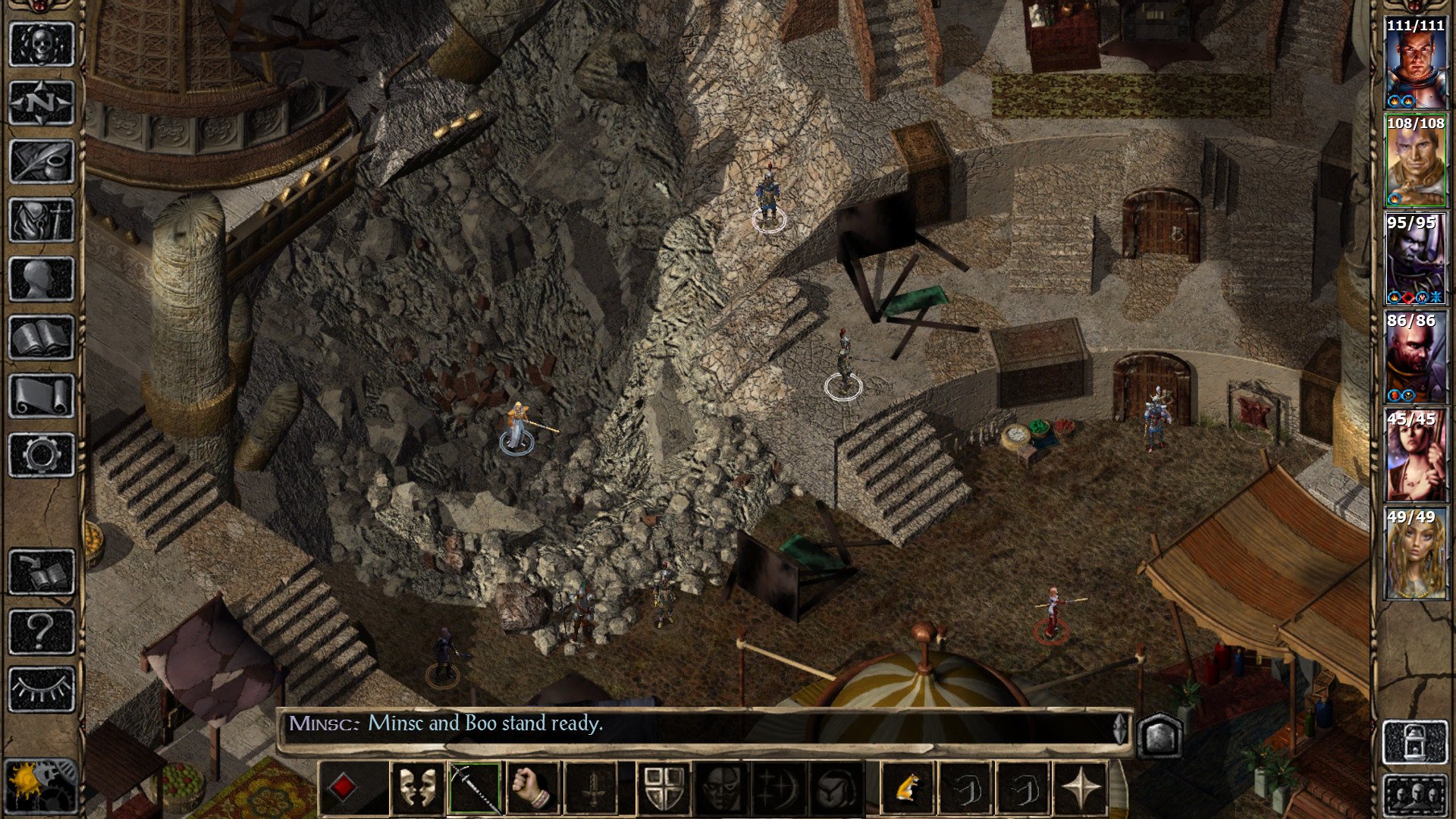
Baldur's Gate II: Enhanced Edition. View full size.
You’re saying that you think that there’s still the potential for these big, multi-million-dollar Kickstarter projects, but it’s going to take way more than just the names of the guys and referencing their past successes?
Tim: I think that what’s happening is basically Kickstarter is a condensed timeline of actual videogame development from the early 70’s to now. You’re seeing it go from an early heyday where you could just say, “I’m gonna make a game about a frog crossing the road” and stick your hand out and everybody would say, “OK, here’s your money, you’re gonna make millions, go ahead and run with it”.
And that was early Kickstarter: you could have a pitch, a rough idea – a promise, really – and some loose concepts and a plan for development. You could make enough money to fund a team and go from there. It was the equivalent of jumping out of a plane and sewing your parachute on the way down. You’re going, “trust me, I can do this. Give me all the materials – I’ll make this happen before I hit the ground”. Some of them succeeded, but a lot of them didn’t, and they all hit the ground hard. Now people are like, “why don’t you go ahead and make that parachute first, and then we’ll give you some money when you prove you’re a capable skydiver”.
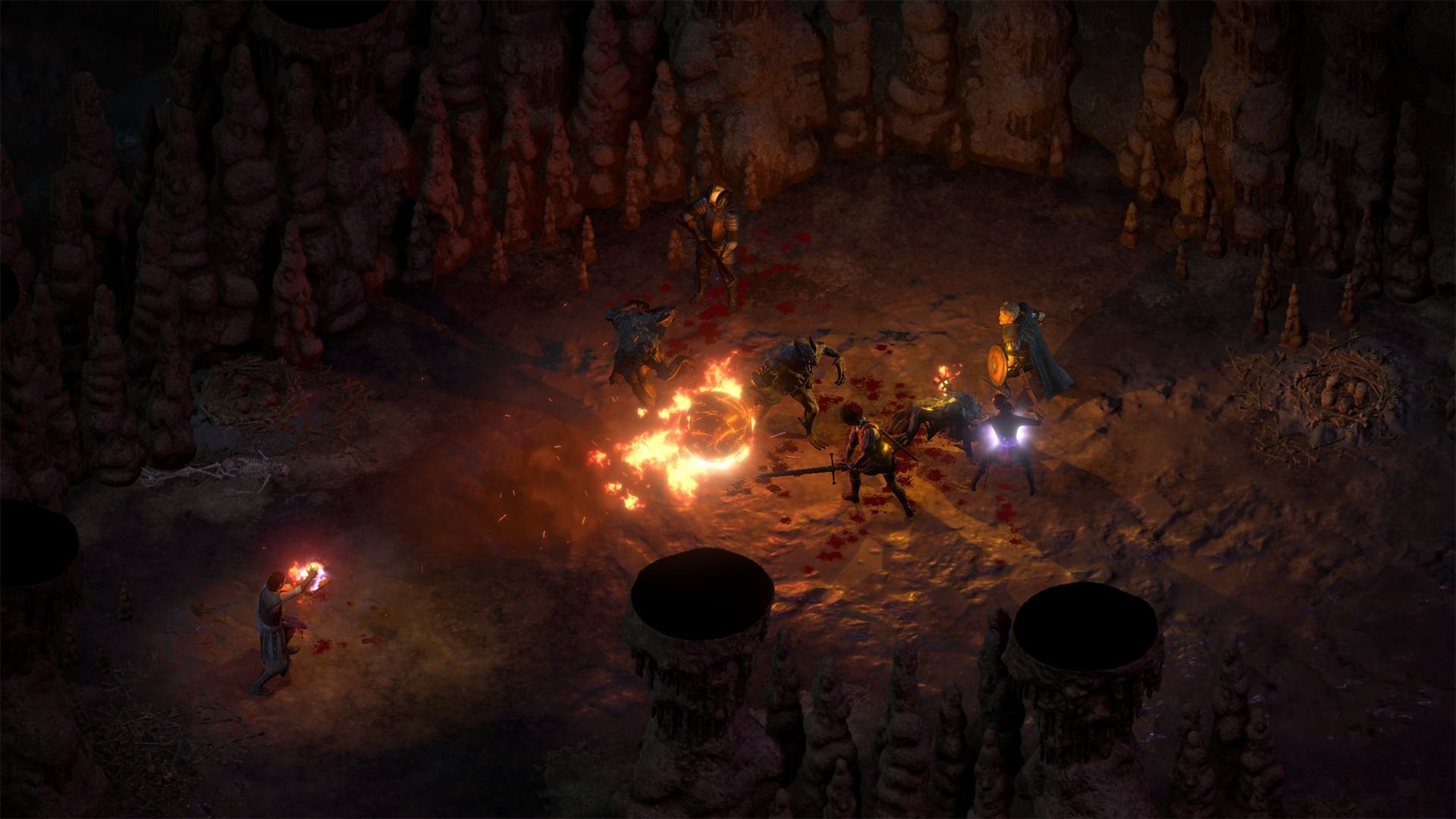
Pillars of Eternity II. View full size.
But I think you can absolutely still do it. There’s still gonna be some dudes that come out, you know, the equivalent of a Miyamoto or Will Wright or John Carmack who can talk about this idea of a game they’ve always wanted to make. People will still give them $50 million… but for a lot of people between the superstars and the unknowns? Well, it’s a lot tougher now. It’s a lot tougher, and it should be. It’s like regular game development: you’ve got to prove that 1) you have an idea that’s well thought out and 2) you’ve got a team that can execute the idea. And developers shouldn’t be offended that that’s the way it has to be – that people won’t just hand over millions without seeing anything.
I mean, I wouldn’t buy a plane ticket for an airline that has never built a plane, then hope they take my ticket money and assemble a plane first time, and then fly me in it.
So you’re not investing in SpaceX, then, are you?
Time: (laughs) Yeah! So, no, I’m just not gonna do it – especially if I’m gonna ride on that plane. You gotta be kidding me. I want to see that guy fly a few planes, or at least know he has a group of people who have regularly done this. A lot of the Kickstarters I see are groups that are going for a lofty goal for a lot of money, they have a very ambitious project, and the team has never done a project like this. Those are three big red flags in any development situation. Now if you scale that right down to where it becomes a little gamble – like, for $5 you can get an early-bird version of the game to download. You’ll be like, “$5? Who cares – that’s a cup of coffee. It’s not a big deal. I won’t give them $70, but I’ll give them $5”.

Battletech. View full size.
You know, I can really identify with what you’ve been saying because when Pillars of Eternity was announced I got in at a reasonable tier that included the novel, the extra pet and the in-game stuff, and I backed a few more games, but by the time the new BattleTech game came out – and I loved BattleTech growing up and I loved Harebrained’s Shadowrun games – I still thought, “no, I’m going to get the $28 dollar one” and it’s like you said: I have pre-ordered BattleTech.
Tim: Yeah, you’re using it for what I think truly Kickstarter was intended to be – which is, a bunch of people going, “I’m so interested in this project that I will pay you in advance for one unit of the project”. I don’t think that Kickstarter’s intention was to get like five whales that come in for hundreds of thousands of dollars. I think it was meant to be more like 100,000 people that each give you $5.
I talked more to Tim on the value of staying touch with your community, as well as a look into the development of his new project Boss 101 – look for those in future posts. For now, learn more about this upcoming action adventure shoot-em-up on Steam, or follow their regularly-posted developer updates here.
Previous:
Interesting People #10: Tim Donley on Kickstarter - Part 1 of 2
Next:
Interesting People #12: Joel Manners on Origin, developing Ultima, open-world game design, and more
